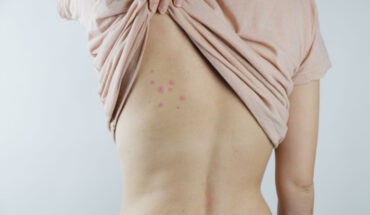Eating disorders have long been associated with women, but the reality is more complex. The stark statistics reveal a significant gap, with eating disorders being more commonly diagnosed in women than in men. The ratio of eating disorder diagnoses between men and women in the UK is approximately 1:10, with women bearing the brunt of these disorders. Eating disorders among males in the UK have been historically underdiagnosed and undertreated. However, there has been a growing recognition of this issue. The exact prevalence varies depending on the specific disorder, but it’s estimated that around 25% of individuals with eating disorders in the UK are male.
Lee Hawker-Lecesne MBPsS, Clinical Director at The Cabin Chiang Mai comments: “We believe it our responsibility to inform the public that eating disorders don’t discriminate by gender. They can affect anyone, and for those men, the pain is very real. The prevalence of eating disorders in males is often underestimated due to stereotypes that associate these disorders primarily with females. However, research suggests that males make up a significant portion of individuals with eating disorders. Exact prevalence rates can vary, but estimates suggest that approximately 25% of individuals with anorexia or bulimia and up to 40% of those with binge-eating disorder are males.”
Percentage Values Based on Recent Trends
Anorexia Nervosa:
Women: Around 90-95%
Men: Around 5-10%
Bulimia Nervosa:
Women: Around 80-85%
Men: Around 15-20%
Binge Eating Disorder:
Women: Around 60-70%
Men: Around 30-40%
Other Specified Feeding or Eating Disorders (OSFED):
Women: Around 70-75%
Men: Around 25-30%
The Cause of Eating Disorders In Men
Like females, males are also exposed to societal pressures related to body image, attractiveness, and the idealized male physique, which can contribute to the development of eating disorders. Body dissatisfaction or negative appraisals of one’s body image or appearance can lead to unhealthy eating behaviours fuelling the onset of disordered eating.
The media has long promoted unrealistic body standards for men, emphasizing muscularity and leanness, which can trigger body dissatisfaction and lead to disordered eating behaviours. Underlying psychological factors such as low self-esteem, perfectionism, anxiety, depression, and trauma can compound these messages and play a significant role in the eating disorders development.
Biological Factors such as genetic predisposition and hormonal imbalances can also contribute to eating disorders in males. Male athletes, especially those in sports that prioritize weight or appearance (e.g., bodybuilding, wrestling), may also be at higher risk due to the pressure to achieve a certain body shape or weight class. Lee says “Ultimately eating disorders are less about vanity, and more about control and numbing emotions. Men can suffer from this just as much as women.”
Delayed Diagnosis
The stigma surrounding eating disorders in males and the perception that they are primarily a female issue can deter men from seeking help. Delayed Diagnosis and treatment can often occur due to healthcare professionals not always recognizing eating disorders in males, leading to exacerbation, and worsening of the disorder. While there have been improvements in recognizing and addressing eating disorders in males, challenges remain. Stigma, limited specialized services, and a shortage of trained professionals can make it difficult for males to access appropriate care. More awareness and education are needed to combat media-fuelled stereotypes and encourage early intervention.
The Cabin Chiang Mai is Asia’s most respected rehab, with a clinical team of more than 50 years’ experience, they have successfully treated over 5,000 inpatients from around the world. The team are delighted to announce their partnership with the world-renowned co-occurring disordered eating specialist Sandhurst Manor to launch a specialist disordered eating programme that is designed to cater to individuals who are considering treatment for their primary addiction, distinct from a disordered eating. Their unparalleled 12 week eating disorder treatment program combines the expertise of two of the world’s foremost mental health providers.
“Society often tells us that ‘real men don’t have eating disorders, but at The Cabin and Sandhurst Manor we are here to say that real men struggle, too. We believe it’s time to break the stigma. Living with an eating disorder leaves men feeling trapped in their own bodies. Those men who suffer report feeling that no one seems to understand. This is not just a ‘women’s issue’, it’s a human issue.” says Lee Hawker-Lecesne.
Nikki Munitz, Clinical Director at Sandhurst Manor comments, “There is a lot of shame around men struggling with body image and eating disorders. Society understands that women have been impacted though social media and society at large around the body. It is not yet acknowledged or accepted that men are equally impacted. Men are affected in all aspects of eating disorders, but what is easy to “see” is body dysmorphia in the gym and steroid use”.
This specialized programme from The Cabin and Sandhurst Manor aims to address both addiction and disordered eating, offering comprehensive support and strategies for holistic recovery. The programme recognizes that disordered eating patterns may have been a substantial concern either presently or in the past.
- Gut microbiome could delay onset of type 1 diabetes - 3rd April 2025
- The da Vinci 5 Robot Is Set To Transform Bariatric Care: - 31st March 2025
- Beyond money: the hidden drivers fuelling child food insecurity - 31st March 2025






